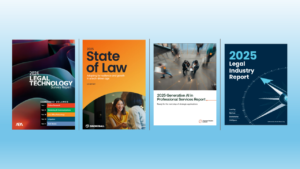UAE Pioneers Use of AI for Lawmaking – A World First

UAE’s Groundbreaking Use of AI in Lawmaking
The United Arab Emirates (UAE) is taking a remarkable step forward by utilizing artificial intelligence (AI) in the legislative process. This pioneering move marks the first time in the world that AI will play a pivotal role in drafting laws, signaling a shift towards more innovative governance methods.
The Role of AI in Lawmaking
Artificial intelligence, with its ability to analyze vast amounts of data quickly and efficiently, is set to assist in creating legal frameworks and regulations. By leveraging AI, lawmakers can:
- Improve Efficiency: AI can process information much faster than humans, enabling quicker drafts of legal documents.
- Enhance Accuracy: AI algorithms can identify inconsistencies and errors in language, reducing the chances of misunderstanding and misinterpretation.
- Facilitate Research: With the capacity to sift through historical data and precedents, AI provides valuable insights that help in formulating robust laws.
How It Will Work
The implementation of AI in UAE’s lawmaking involves a multi-step process:
- Data Collection: The government will gather existing laws, regulations, and related documents to feed into the AI system.
- Analysis and Drafting: AI will analyze this data to identify key themes, issues, and trends, which will aid in drafting new laws.
- Review Process: Drafts generated by AI will still be reviewed by legal experts to ensure they meet the necessary legal standards and contextual relevance.
- Public Feedback: The AI-generated drafts may undergo public consultation, allowing citizens to provide input before the final legislation is passed.
Benefits of AI in Lawmaking
The move to incorporate AI in the legislative process offers several potential benefits:
- Increased Transparency: AI can make the law drafting process more transparent by allowing stakeholders to track how laws are created.
- Cost-Effectiveness: By streamlining the drafting process, the UAE government may reduce expenses associated with traditional law-making methods.
- Adaptability: AI can quickly incorporate changes based on evolving societal needs or emerging issues, making laws more responsive to current demands.
Challenges to Consider
Despite the promising prospects of AI in lawmaking, there are challenges that need to be addressed:
- Ethical Concerns: The use of AI raises questions about accountability and the ethical implications of delegating lawmaking to autonomous systems.
- Dependence on Technology: Relying heavily on AI could lead to a situation where human judgment is undervalued in the legal process.
- Data Privacy Issues: Ensuring that the data used to train AI systems is secure and respects individual privacy rights is paramount.
The Global Context
The UAE’s initiative may inspire other countries to explore similar technological integrations in governance. Various nations are already experimenting with AI in different public sectors, such as healthcare and education, but this leap into lawmaking could set a new standard. Countries around the world will be watching closely to see how the UAE navigates this intricate process.
Future Implications
The use of AI in law drafting could transform not only the UAE’s legal landscape but also the broader implications for global governance. As AI continues to advance, its integration into various sectors, including law, promises a future where technology aids in creating efficient, accurate, and adaptable regulations.
By venturing into the realm of AI-assisted legislation, the UAE is positioning itself as a leader in innovative governance practices, potentially reshaping how countries worldwide approach lawmaking in the digital age. The developments in this space will be a key topic for policymakers, legal professionals, and technology experts alike.





